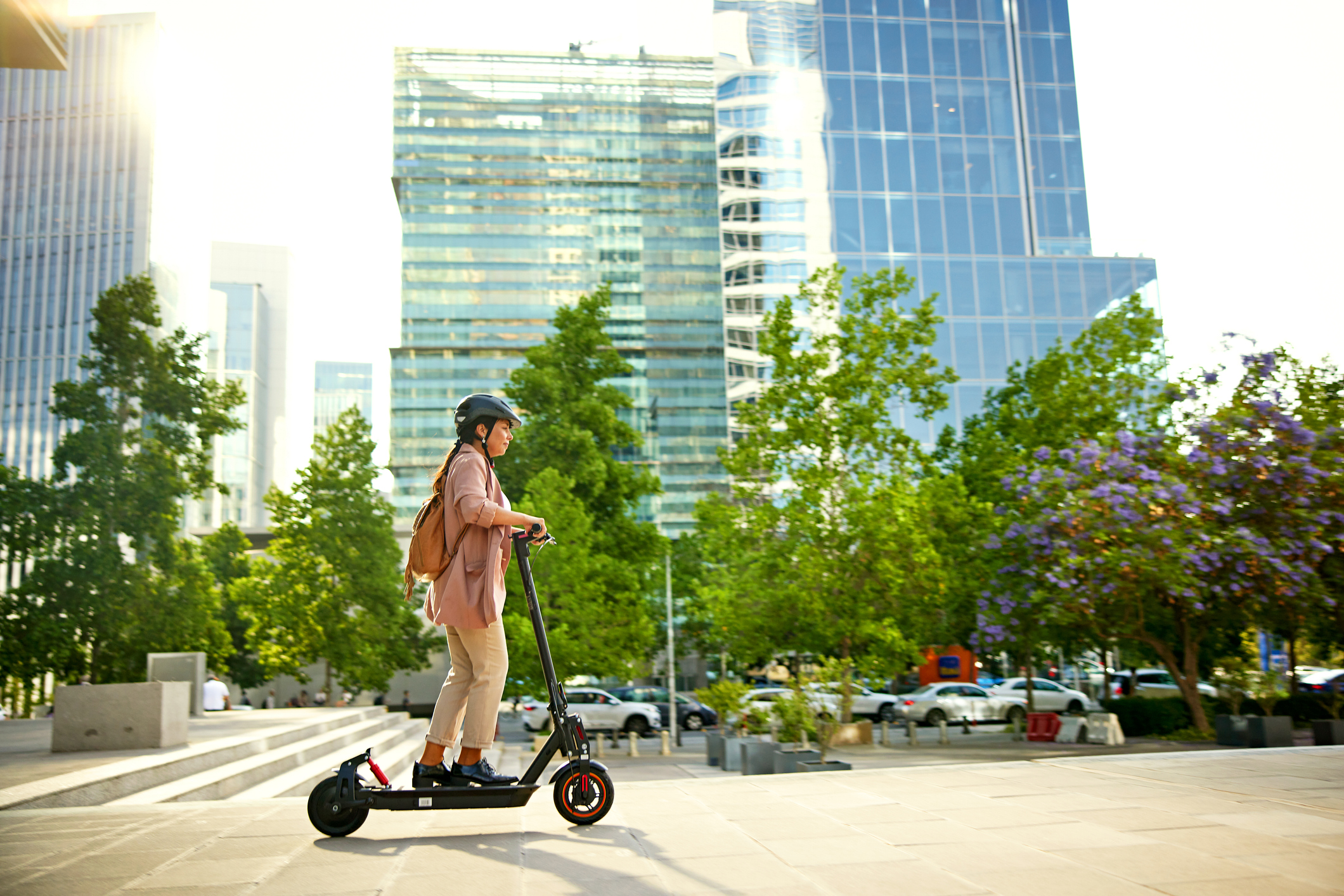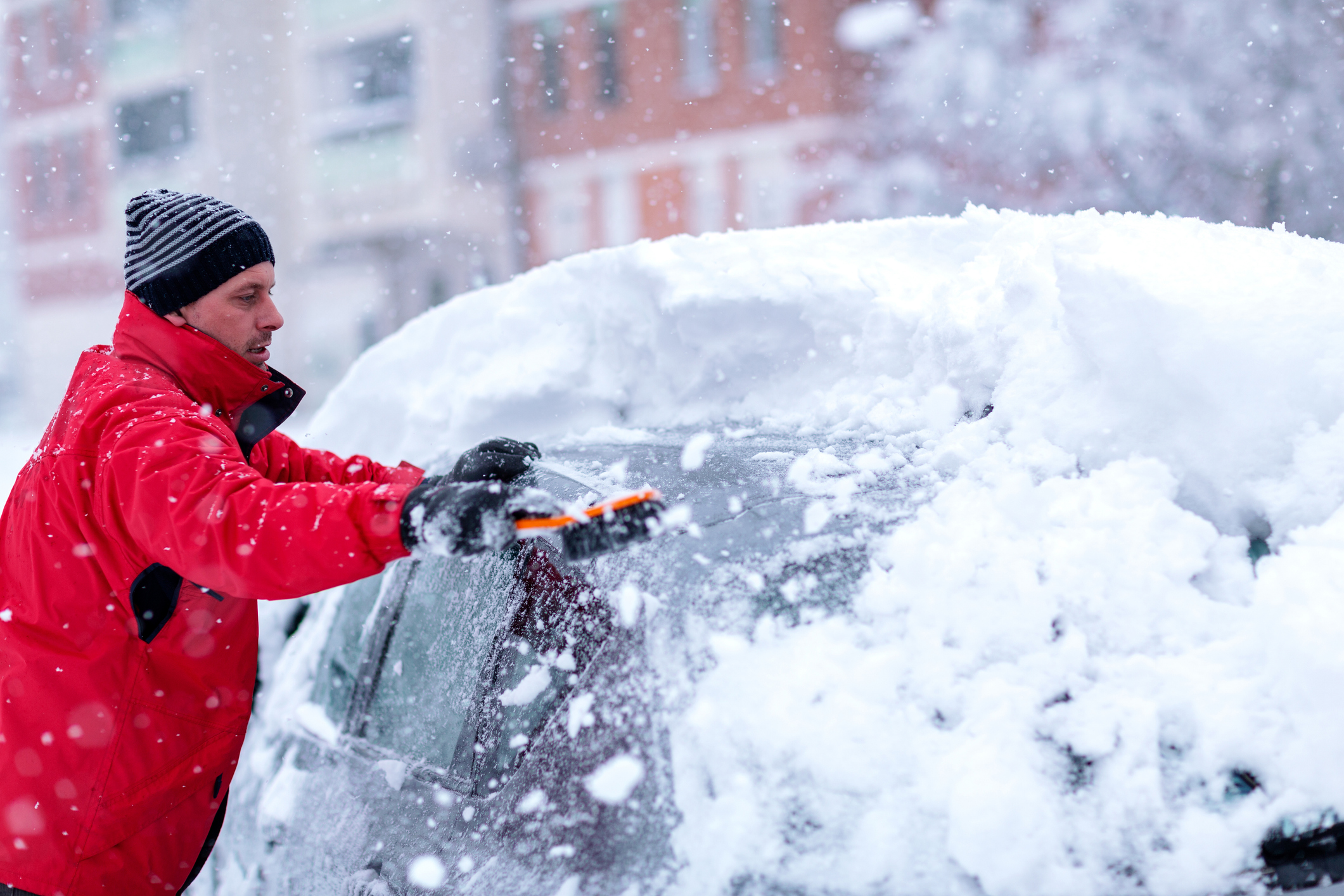When it comes to navigating the streets, electric scooters, or LSESs, are as trendy as they are tricky. As the popularity of LSES and their presence on the roadways increases, it became all but certain that questions about insurance coverage would arise. For example, how are LSES and their operations classified under New Jersey’s No-Fault Law? It turns out, figuring out if an e-LSES rider is a “pedestrian” under that law is no small feat.
Recently, the New Jersey Supreme Court weighed in on that question in the case of Goyco v. Progressive Insurance Co.
Buckle up as we delve into this recent court decision and its implications for e-scooter enthusiasts and insurance policies alike.
Just the facts
David Goyco, the plaintiff, was injured while operating a LSES when an automobile struck him. He sought personal injury protection benefits from his automobile insurance policy with Progressive Insurance Co., which denied his claim on the grounds that the LSES did not qualify as an “automobile” and Goyco was not a “pedestrian” under the policy terms.
During the trial, the court concluded that a LSES was not an automobile and that Goyco was not a pedestrian under the No-Fault Act. The New Jersey Appellate Court affirmed the trial court’s decision. Goyco appealed that decision to the New Jersey Supreme Court.
The legal question
The central issue was whether an operator of an LSES is considered a “pedestrian” and therefore entitled to PIP benefits under the New Jersey Automobile Reparation Reform Act (No-Fault Act).
What the court said
The New Jersey Supreme Court began its analysis by focusing on whether Goyco met the definition of pedestrian as that term is defined by New Jersey’s No-Fault Act. Under that act, a pedestrian is defined as any person who is not occupying, entering into, or alighting from a vehicle propelled by other-than-muscular power and designed primarily for use on highways, rails and tracks.
To determine if Goyco met this definition, the court asked three questions about the LSES:
- Is it a vehicle?
- Is it propelled by other-than-muscular power?
- Is it designed primarily for use on highways, rails and tracks?
Is it cake a vehicle?
In its decision, the court held that an LSES is a vehicle under New Jersey law. To reach that conclusion, the court stated that the term vehicle is not defined in the No-Fault Act. As such, the court looked to the dictionary definition of vehicle to determine if an LSES would qualify.
According to several dictionaries, a vehicle is defined as anything used for the transportation of people or goods. Given that definition, the court concluded an LSES would be considered a vehicle.
More (muscle) power!
The court next turned to the question of whether the LSES is propelled by other-than-muscle power. Here the court’s analysis was straightforward. The LSES used an electric motor with a rechargeable battery.
While the LSES could be propelled by muscle power, it is designed to be propelled by the aforementioned motor and battery. As such, the LSES was not propelled by muscle power.
Highways, rails and tracks … oh my!
Finally, the court looked at the last requirement, whether the LSES was designed primarily for use on highways, rails and tracks. As with its analysis of what a vehicle is, the court looked at the dictionary definition of “highway” and adopted a broad definition.
The court found that a highway can be any main route on land, on water or in the air, which is a free and public roadway that every person can use. Then, the court noted that Goyco’s LSES could travel at approximately 15 miles per hour and had a headlight, brake light and speedometer, all instruments added for use on highways.
Intentionally intentional
Before reaching a final ruling in the case, the court addressed an argument by Goyco that LSES riders should be considered pedestrians under the No-Fault Act because of the legislative intent of N.J.S.A. 39:4-14.16, passed in 2019, which governs the operation of LSES.
That statute states that LSES may be operated on the streets, highways, roadways and bicycle paths of New Jersey. However, the court was not convinced. It concluded that N.J.S.A. 39:4-14.16 did not affect the No-Fault Act’s definition of “pedestrian,” as the act and the 2019 statute belong to different regulatory contexts and serve distinct purposes.
What comes next?
The Supreme Court’s ruling—while technically and legally sound—does raise a question on how LSES should be treated for insurance purposes. The court recognized this question, as well. In part, the court refused to expand the definition of “pedestrian” to include LSES operators because it would be a policy decision with insurance cost implications. Instead, the court concluded that the issue is one that should be handled by the Legislature, not the court.
Legislative efforts
At the end of the last legislative session, legislation was introduced that would have created insurance requirements for LSES. However, it failed to pass the state Senate before session ended.
The state Legislature is expected to tackle this issue again during the 2024-25 legislative session—especially in light of this court decision.

Bradford J. Lachut, Esq.
Bradford J. Lachut, Esq., joined PIA as government affairs counsel for the Government & Industry Affairs Department in 2012 and then, after a four-month leave, he returned to the association in 2018 as director of government & industry affairs responsible for all legal, government relations and insurance industry liaison programs for the five state associations. Prior to PIA, Brad worked as an attorney for Steven J. Baum PC, in Amherst, and as an associate attorney for the law office of James Morris in Buffalo. He also spent time serving as senior manager of government affairs as the Buffalo Niagara Partnership, a chamber of commerce serving the Buffalo, N.Y., region, his hometown. He received his juris doctorate from Buffalo Law School and his Bachelor of Science degree in Government and Politics from Utica College, Utica, N.Y. Brad is an active Mason and Shriner.





